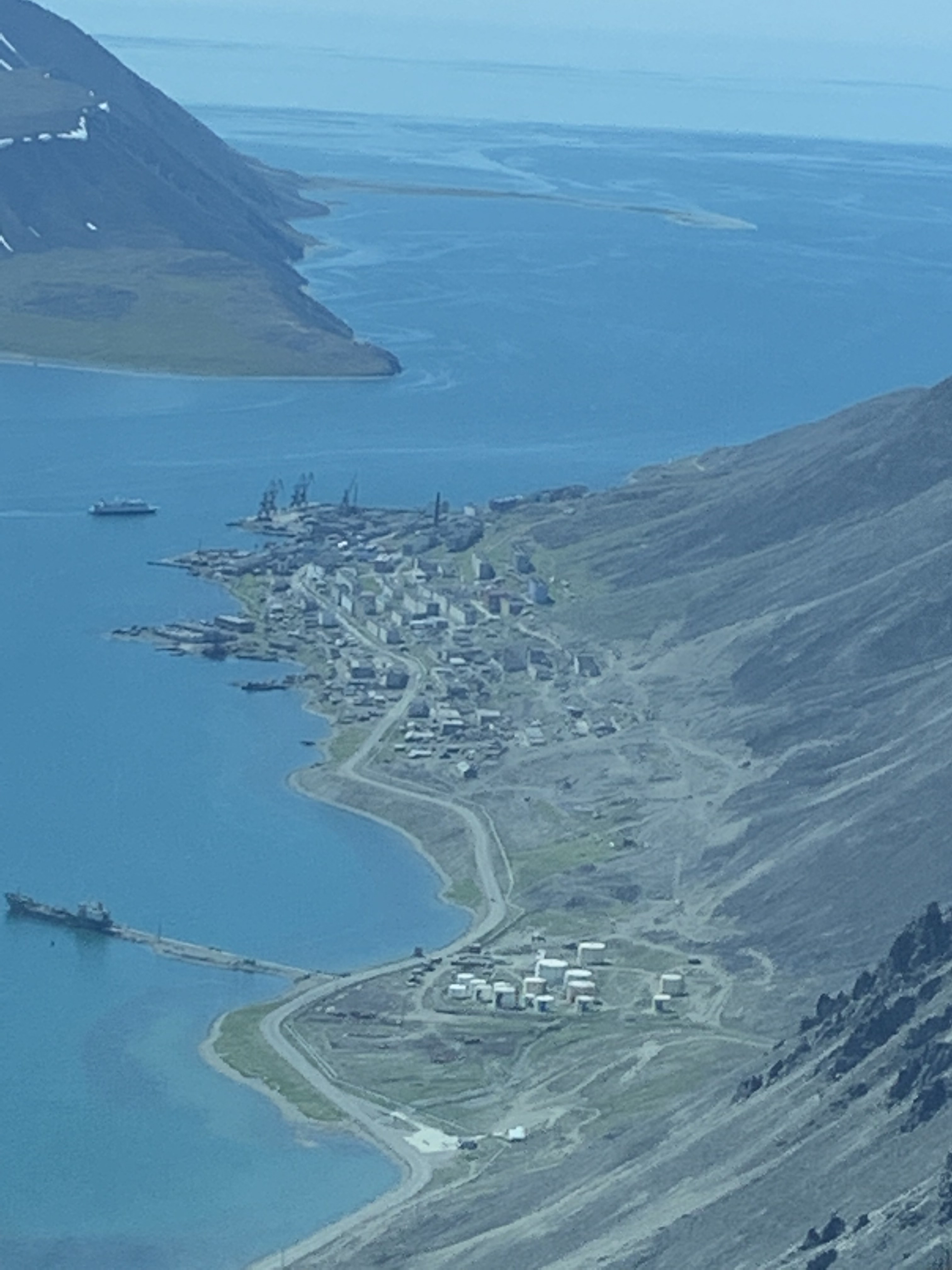With an Alaska-to-Chukotka flight, travelers push for easier Bering Strait crossings between US, Russia
A group of private aviators successfully completed a flight across the strait, in a bid to keep alive fragile international ties in the region.

After enduring several days of weather delays, a slimmed-down convoy of aviators and travel pioneers intent on strengthening Alaska-Russia ties completed a planned trip across the Bering Strait early this month.
Two planes carrying six people made the long-planned but short-distance trek from Nome on Alaska’s Seward Peninsula to Provideniya on Russia’s Chukotka Peninsula. It was a smaller group than the six planes and 11 people originally planned, and it was, by air-travel standards, just a short hop, only 230 miles. Still, the journey carried a lot of significance.
The specific purpose of the trip was to keep the Nome-to-Provideniya route status active. The route has official designation from the Federal Aviation Administration and from Russian officials, but its use has dwindled, said Tandy Wallack, owner of a tour company and one of the organizers of the trip.
The fewer planes that use the route, the more onerous the bureaucratic hurdles become, said Wallack, whose company, Circumpolar Expeditions, has been conducting tours for decades in the Russian Far East.
Leaving Nome on July 7, the group flew over the Diomede islands — Alaska’s Little Diomede and, less than three miles to the west, Russia’s Big Diomede. When they arrived in Provideniya, home to nearly 4,000 people, the weather was perfect, the welcome was warm and the travelers had fun, Wallack said.

The group also visited New Chaplino, a Chukotka village of about 400 people, and they met with managers of Beringia National Park, which was established in 2013. Those managers expressed interest in having pilots from Alaska help ferry rangers to remote sites in the sprawling and park, Wallack said. “Some of their rangers haven’t even seen other parts of the park,” she said.
In all, it was a moving experience, she said.
“Actually seeing the coast of Chukotka, you realize how close we are,” she said.
The trip had a broader purpose beyond keeping the air route active. Wallack and her colleagues are trying to revive exchanges between the Alaska-Russia neighbors. Those exchanges were much more frequent in the era just before and after the dissolution of the Soviet Union. But as U.S.-Russia relations deteriorated, so did travel across the Bering Strait. Alaskans regret that trend, Wallack said, and so do the people on the Russian side of the border.
“We’re so close and we used to have such wonderful exchanges back and forth over the years. But now it’s dropped off, and they’re worried about that,” she said.
One way to help achieve that goal is to establish visa-free travel between the two sides of the strait. Wallack is trying to convince the Russian government to set up a 72-hour visa-free rule for travelers to Chukotka that would be similar to the existing 72-hour visa-free stays allowed for travelers who come from Helsinki to St. Petersburg.
She has gathered support from Nome Mayor Richard Beneville and from the mayors of Provideniya and New Chaplino. And before she departed for Nome to start the journey, Wallack raised the issue with Russia’s ambassador to the U.S., Anatoly Antonov, who was in Anchorage on June 21 delivering a speech at a forum hosted by the Anchorage World Trade Centers Association.
Antonov asked Wallack to put her request into a formal letter and promised to provide and answer. And he echoed others in saying the cross-Bering Sea ties are important.
“I am sure when we have problems at the federal level, we have regional connections,” he said.
For people on the Alaska side, there are some practical reasons for active communications and contacts with neighbors in Russia.
An example, scientists have said, is the need for information about recent bird die-offs that have struck the Bering Strait region. Masses of dead birds have been found in the past few years on beaches on the Alaska side, and it would be helpful to hear what is happening on the other side, said Gay Sheffield, the University of Alaska Fairbanks’ marine advisory agent for Nome.
“I’m sure the Russians had problems with birds as well, but we just couldn’t talk to them,” Sheffield said at a science workshop held July 16 and 17 at the UAF satellite campus in Nome.
Mayor Beneville said more ease of travel and communications is important to Indigenous families divided by the international border and for other local people trying to make a living from — and safeguard — the Bering Strait’s environment.
It is sad that exchanges have dropped off, he said.
“Where we are with Moscow and Washington is one thing. But the working folks love what happened in 1989,” said Beneville, who has operated tours himself and brought many visitors to the Russian side.
Overcoming the obstacles that have brought back a Cold War-like atmosphere will not be easy, he warned. “To say it’s a breeze, down the garden path, it’s not,” he said.